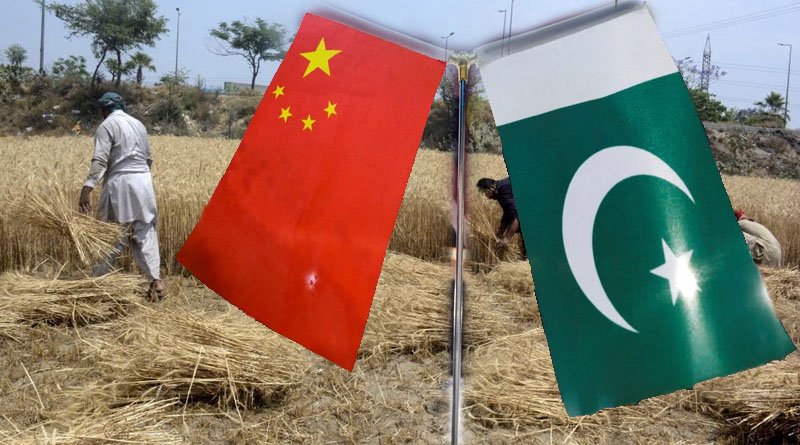Xiang Yang said that in order to increase agriculture productivity in Pakistan, NUST had signed three memorandums of understanding with various Chinese institutions.

The China-Pakistan Agricultural Corridor (CPAC) project would help farmers in Pakistan develop socioeconomically and open up new opportunities for cooperation between the two all-weather strategic partners.
In an exclusive interview on Sunday, the director of the National University of Sciences and Technology’s (NUST) China Study Center, Xiang Yang, said that CPAC was a project of great significance that would serve as a role model for other nations in the region to follow and strengthen the idea that collaboration and partnership could result in significant accomplishments and benefits for all.
She said that in order to increase agriculture productivity in Pakistan, NUST had signed three memorandums of understanding with various Chinese institutions. She insisted that the contracts were signed with the Weifang Engineering Vocational College, the Qingzhou Municipal People’s Government, and the Weifang National Agricultural Open Development Comprehensive Pilot Zone.
She claimed that this partnership would make it possible for China and Pakistan to exchange resources, know-how, and knowledge while collaborating on improving and advancing sustainable agricultural practises.
She claimed that the agriculture in South Asian nations was suffering from low productivity, supply shortages, low returns for farmers, a lack of cutting-edge technology, and a lack of skilled professionals, endangering the region’s ability to feed its people.
Since Pakistan is an agro-economic country with enormous potential for crop production and agricultural science research, addressing these issues will have a significant impact on people’s lives there, she added.
Xiang Yang stated that, NUST is actively pursuing research in the fields of environmental sciences, agri-technology, and agribusiness, with a focus on precision agriculture, multispectral sensing of crop fields, applications for 3D printing and scanning, early pathogen detection, and efficient plant disease management.
She acknowledged that there are still many obstacles to implementing sustainable agriculture resource management systems, but she expressed the hope that these agreements would be crucial in bridging those gaps.
According to the agreements, the institutions would conduct research on industrial development strategy, industrial demand analysis, and development prospect forecasting, as well as on the construction of a complete agricultural industry chain system between China and Pakistan.
They would support the industrialization and deep processing of regional agricultural products in addition to the research, development, and integrated innovation of key technologies for Pakistan’s efficient and standardised crop cultivation.
In addition to helping to create job opportunities, they would organise a three-year training programme for international students and foster bilateral exchanges between the two sides.
Along with precise crop fertilisation and technology exchange and cooperation for harvest loss reduction, they would construct an agricultural laboratory and test field in Pakistan to conduct experiments and promote advanced Chinese agricultural technology. They would create joint applications for agricultural science projects in order to collaborate on the social and economic development of the two nations.
